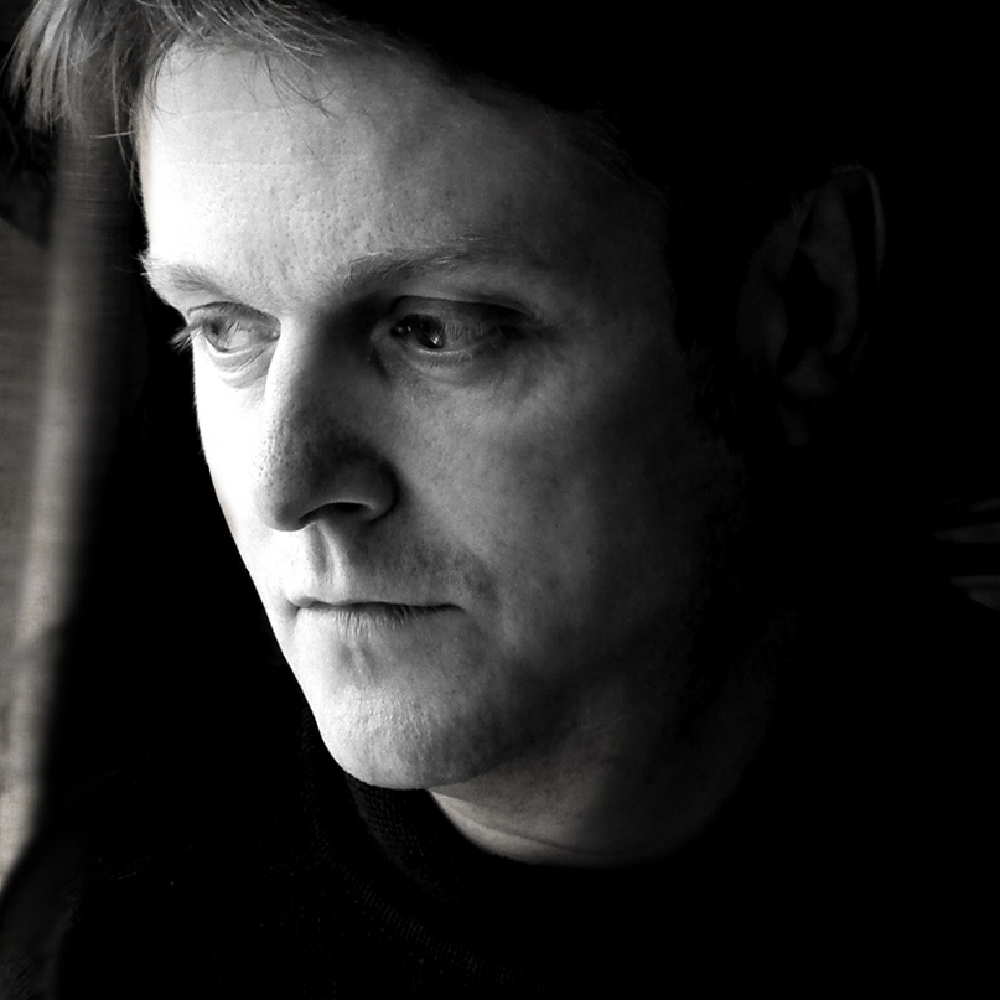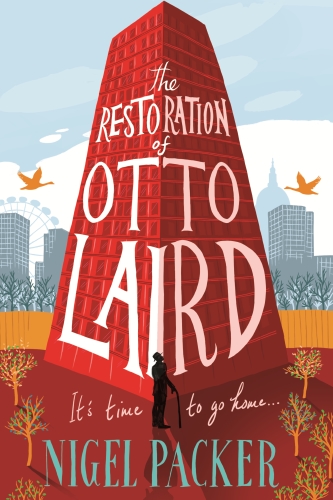
Nigel Packer

The Restoration of Otto Laird weaves together several different themes. It is a love story, a family history, a tale of loss, grief and second chances. It’s also the story of a single building.
Otto Laird is an elderly architect, living in comfortable retirement in Switzerland. But his life changes dramatically when he learns of plans to demolish one of his most celebrated buildings, a 1960s tower block in London.
As part of a campaign to save the building, he is asked to take part in a TV documentary, which will mean returning to London to live for a week inside the decaying tower block. He has not lived in London for many years - it is a city that holds painful memories for him - but he agrees with some reluctance to take part.
During the course of filming, Otto becomes overwhelmed by memory, reliving episodes from his past and reassessing his whole life. Otto’s story – from his early childhood onward – is revealed in a series of flashbacks, interspersed with scenes from the present day.
His story is a tragic one, in many respects, but there is plenty of humour within the book and it is ultimately designed to be a life-affirming read.
How much has your background helped you to write this book?
There are aspects of the novel which are based on my own experiences, or those of people close to me. On the other hand I’m much younger than Otto, so I had to draw on my imagination and some background reading to fully develop his character.
In terms of the book’s setting, I’ve lived in London for much of my life – I have family roots in the city – so it’s a place filled with memories for me. Also, having spent some years living away from the city, I felt a certain empathy with Otto’s situation.
Whenever returning to London as a visitor, I always felt the same sense of ambivalence. The city was familiar yet unfamiliar, a place in constant flux. I imagined how much greater that feeling would be for someone like Otto, who had been away from the city for several decades. It provided a lot of ideas for the novel.
You have also been a music reviewer, so who has been your favourite artist in 2014?
It’s been some years since I wrote regularly about music, so I don’t follow new developments as closely as I used to, but it was great to see Paloma Faith build on her success with a strong third album. She’s an original talent who is proving to have real longevity.
This is your debut book, so how has the process been for you?
It’s been fascinating to learn about the publishing process, which is a lot more collaborative than I had realised. Writing the manuscript is only the start. Once a novel has been acquired by a publisher, there are various others stages to go through. Revisions, editing, copy-editing and proofreading: it’s a long and detailed process. It went pretty smoothly, all things considered, and everyone along the way was very helpful. It was a creative environment in which to work.
Please tell us about the character of Otto Laird.
Otto is a complex and rather eccentric character, who has had a varied and at times very difficult life. He began life as a refugee in 1930s Europe, so he has known great suffering and hardship, as well as much success in his professional life.
He is warm-hearted but prone to occasional bouts of ill-temper, headstrong yet vulnerable, extremely worldly in some respects, but surprisingly naïve in others. Like everyone, he is flawed and full of contradictions. Yet he is honest and self-aware enough to acknowledge his mistakes and face up to his past, which is the underlying reason for his return to London.
I wanted to portray as far as possible a three-dimensional character. Otto is a humane man, with integrity and talent, but he is also self-destructive at times. He does not always consider the effects of his actions upon those he loves.
Why did you decide to set the book in Switzerland at first?
I lived in Switzerland for a couple of years, while working for a humanitarian organisation, so it seemed logical to set the early part of the book in an area I knew pretty well. I also thought it would make an interesting contrast to the world that Otto encounters back in London. When the book begins he is in a state of some comfort – even complacency – so it comes as quite a shock for him to see another side of life once again. Otto’s return to London acts as a wake-up call, reminding him of how far he has drifted from the ideals that drove him as a younger man. He rediscovers at least some of that drive as the novel develops.
Your book has been compared to The Hundred Year Old Man and The Unlikely Pilgrimage of Harold Fry, so how does this make you feel?
It’s very flattering. Both Harold Fry and Hundred Year Old Man are excellent books, which inspire a lot of affection in readers. If Otto could achieve anything like their profile, I’d be very happy indeed! On the other hand, I’m not entirely sure that the three books have a huge amount in common, beyond an elderly male protagonist at their heart. Each is distinctive in its own right; with its own flavour and style.
I hadn’t heard of the other two books when writing Otto in 2012, so it was quite a surprise to find I was part of an emerging ‘grey lit’ movement. It’s probably the first time I’ve ever tapped into a current trend - and it happened entirely by accident! I guess there must be a lesson in there somewhere about trusting to your instincts and writing the book you really want to write.
What is next for you?
Another novel, which I’m working on at the moment, and various other writing assignments. There will also be some promotional events for Otto, such as book readings and literary festivals. It’s taken me a while to adjust to the shock of becoming a published author, but I’m starting to really enjoy it now.

